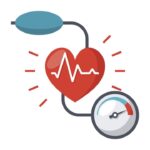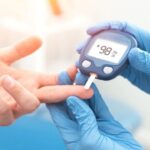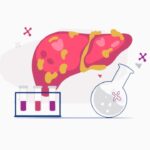Nowadays, in Asian countries, the prevalence of Gastroesophageal Reflux Disease (GERD) is on the rise, with many individuals affected by this condition. Often occurring silently, GERD is challenging to detect, especially in its early stages when symptoms are subtle, such as occasional heartburn or acid regurgitation. However, if left untreated, GERD can lead to severe complications.
1. Understanding Gastroesophageal Reflux Disease (GERD)
GERD is characterized by the backward flow of stomach acid into the esophagus, causing symptoms like acid regurgitation and nausea. In a healthy digestive system, food is ingested into the mouth, travels down the esophagus, and enters the stomach. The lower esophageal sphincter, a muscular valve, opens to allow food into the stomach and then closes to prevent the backflow of stomach contents.

Gastroesophageal Reflux Disease (GERD) is a common disease of the digestive system
2. Recognizing GERD Symptoms
Individuals with GERD experience a range of symptoms, including:
2.1 Belching, Heartburn, and Acid Regurgitation
Belching is a common early symptom, often mistaken for a normal bodily response. Additional symptoms include heartburn and a burning sensation in the chest, especially after consuming a full meal or lying down.

Symptoms of GERD are belching and heartburn
2.2 Nausea and Vomiting
The upward movement of stomach acid into the throat can induce a nauseous feeling, with vomiting being a possible consequence, particularly at night when lying down.
2.3 Hoarseness and Cough
Persistent exposure of the vocal cords to stomach acid can lead to hoarseness and a chronic cough. Over time, this irritation may escalate into difficulty speaking.
2.4 Chest Discomfort
GERD can manifest as chest pain or pressure, sometimes radiating to the back and arms. This discomfort results from acid irritating nerve endings in the esophagus.
2.5 Increased Salivation
Elevated stomach acid levels may prompt excessive salivation, a protective mechanism to neutralize acid and safeguard the oral cavity.
3. Primary Causes of GERD
GERD can stem from various factors, primarily categorized into two groups:
3.1 Weakening of the Lower Esophageal Sphincter (LES)
Factors contributing to LES weakness include side effects of certain medications (such as blood pressure, anti-inflammatory, and pain medications), lifestyle choices (smoking, alcohol, caffeine), and conditions leading to muscle or nerve impairment in the esophagus.
3.2 Excessive Stomach Acid and Overloading
Conditions like pregnancy, obesity, stress, and certain gastrointestinal disorders contribute to increased stomach acid production, fostering the conditions for GERD development. Additionally, habits like overeating and consuming hard-to-digest foods play a role.
4. Risks and Complications of GERD
Persistent GERD can lead to several complications:
4.1 Esophageal Ulcers
Chronic exposure to stomach acid can cause ulcers in the esophagus, resulting in bleeding, pain, and inflammation.
4.2 Strictures and Scarring
Repeated injury to the esophageal lining may lead to the formation of scar tissue, causing narrowing (strictures) that impede food passage.
4.3 Barrett’s Esophagus
Continuous damage to the esophageal lining may trigger changes in cell structure, a condition known as Barrett’s esophagus. This condition elevates the risk of esophageal cancer.
4.4 Esophageal Cancer
In rare instances, long-term GERD may progress to esophageal cancer, emphasizing the importance of early detection and treatment.
5. Maintaining a GERD-Friendly Diet
Adopting a suitable diet is crucial for managing GERD:
5.1 Recommended Foods
– Whole-grain bread, oats, and brown rice to reduce excess stomach acid.
– Probiotic-rich foods like yogurt to support digestive health.
– Low-acid fruits such as bananas, pears, and apples.
– Lean meats and poultry.
5.2 Foods to Limit or Avoid
– High-fat foods that delay digestion.
– Carbonated drinks, alcohol, and caffeinated beverages that can aggravate symptoms.
– Acidic fruits like citrus fruits.
6. Seeking Timely Medical Attention
Upon experiencing GERD symptoms, seeking prompt medical attention is crucial. Early intervention can prevent complications and mitigate the impact on overall health.

Timely medical attention
In conclusion, understanding GERD symptoms, causes, and adopting a GERD-friendly diet are essential for managing this condition effectively. Timely medical consultation and lifestyle adjustments play pivotal roles in safeguarding long-term health.
It is important to note that the information provided is for reference purposes and research and does not replace medical consultations, diagnoses, or treatments. Patients should follow the guidance of healthcare professionals to ensure their health and well-being.








